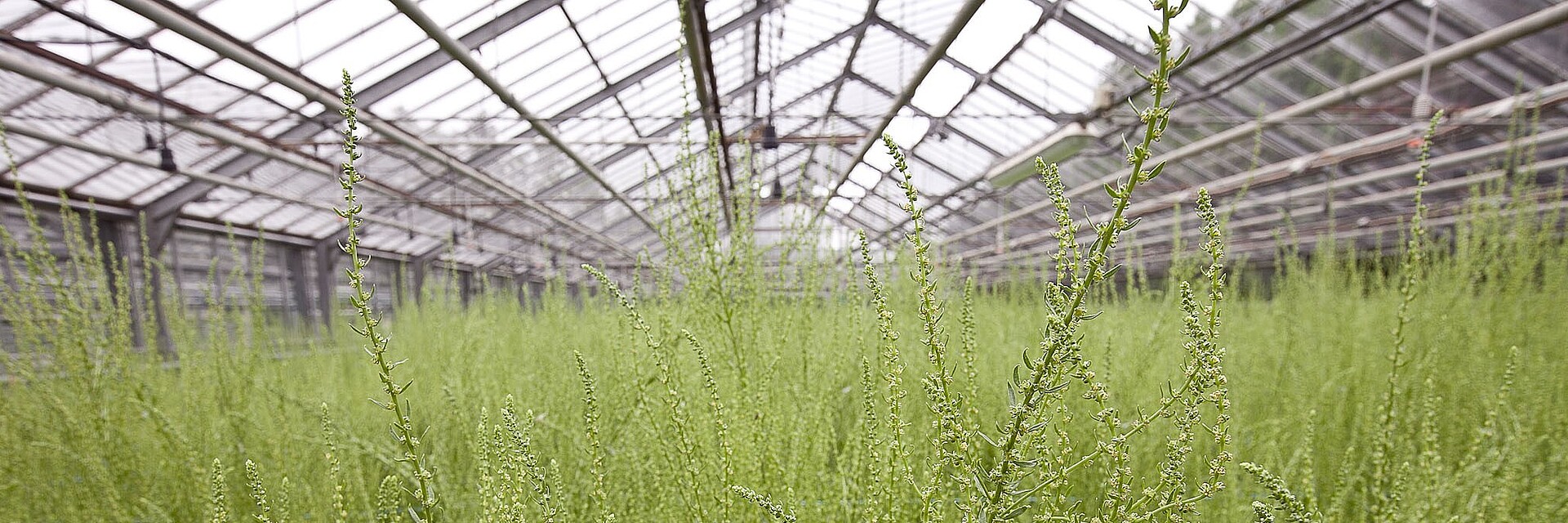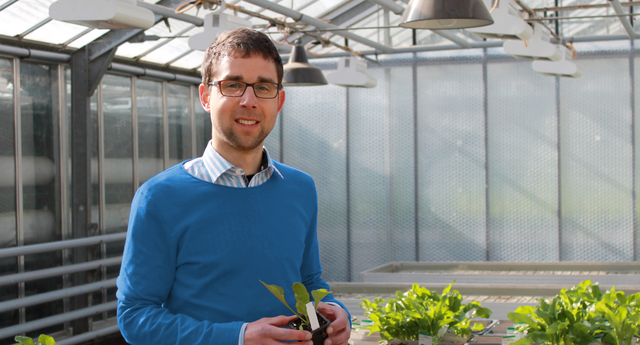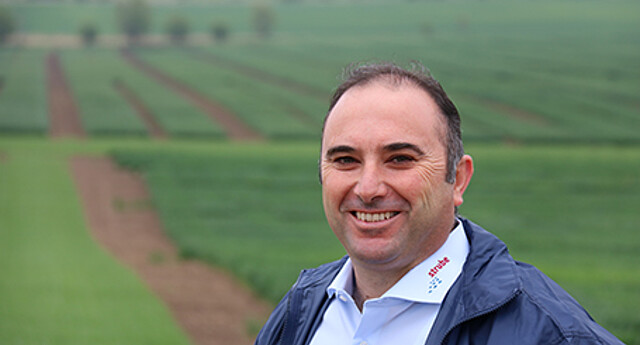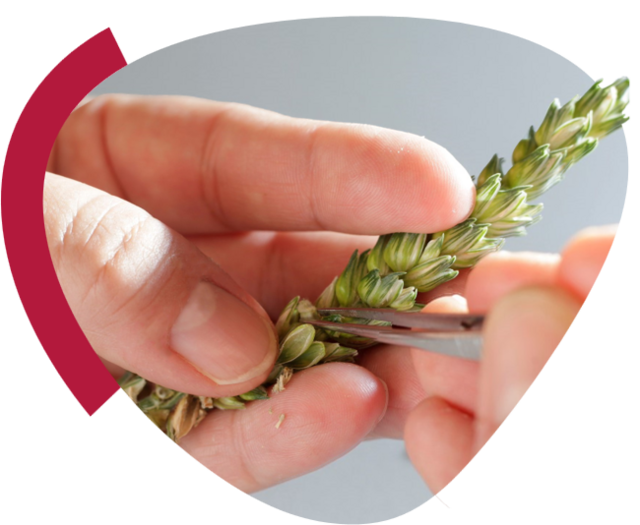
Our cultivation work
Our successful and independent breeding work requires an exact knowledge about plants. This includes their genomes and the properties embedded therein, as well as their phenotypical characteristics and physiological modes of function. This is why we research independently and are involved in projects in which these fundamentals are further explored. We work out new testing and screening methods to be able to safely recognise disease-resistant and qualitatively improved plants.
Armed with the new insights, we can select plants better and recombine them more accurately. We check the success of a crossing with the assistance of molecular markers. This is followed by several generations of backcrossing by labor-intensive manual castration and pollination. We then select suitable plants and plant lines according to desired breeding objectives.
Healthy, profitable, robust
The requirements that our customers place on our varieties have increased steadily in recent years. Resistance breeding against diseases and pests has assumed an increasingly significance within classical breeding objectives over the past years.
To meet the requirements, our variety candidates are tested for several years at different sites for their yield performance. The testing sites represent the potential area of future use of the varieties and reflect a wide range of climate and soil types. This enables us to secure reliably high yields even under variable climatic conditions. Only then our variety candidates are registered by our customers with the competent regional authorities for testing and awarding of plant variety protection. Overall, it takes several years from source crossing to the time when a variety is ultimately approved.
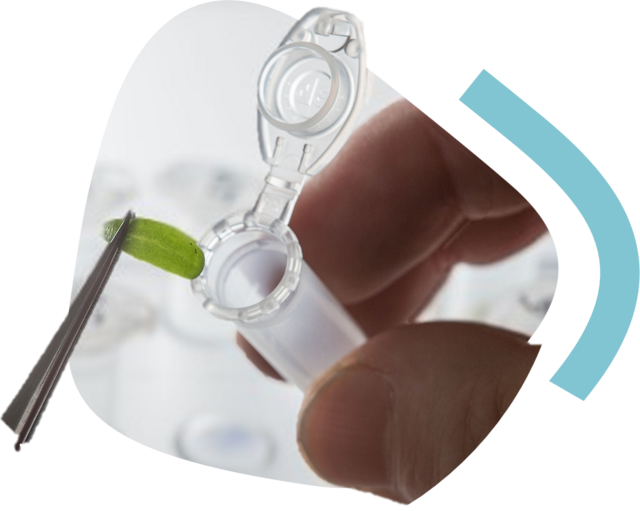
Breeder portraits
We are currently breeding sugar beet and wheat. Many years of research work by our employees is usually behind every new variety. The complete team works every day with great commitment and the latest scientific methods on the constant improvement of variety performance and disease resistance.

